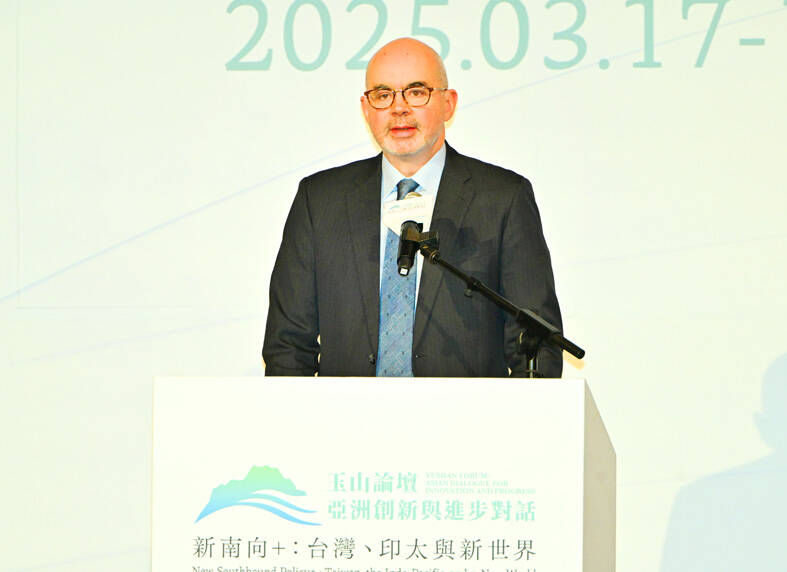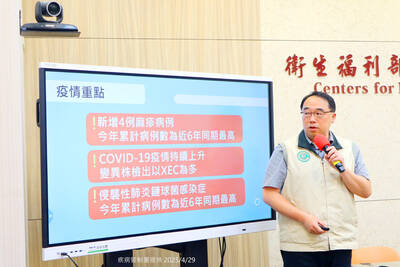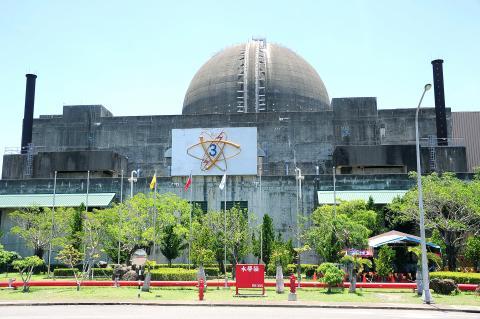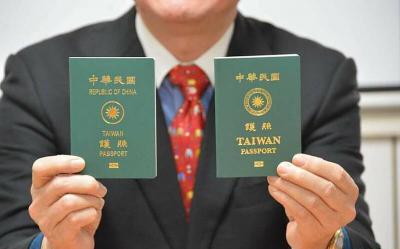Comments by the director of the American Institute in Taiwan (AIT) show that the US supports Taiwan’s efforts to crack down on Chinese espionage, but do not represent a substantive change in policy, former US officials and academics said.
President William Lai (賴清德) at a news conference on Thursday last week said that China over the past few years has intensified its efforts to infiltrate Taiwanese society and sow division through influence operations.
Saying that such actions classify China as a “hostile foreign force” under the Anti-Infiltration Act (反滲透法), he proposed measures to counter the threat, including restoring the military court system, tightening restrictions on Chinese travelers and new residents, and monitoring civil servants who travel to China for exchanges.

Photo: Tien Yu-hua, Taipei Times
AIT Director Raymond Greene in a speech on Monday said that Lai’s initiative would “further enhance [the US’] ability to cooperate with Taiwan.”
Robert Wang (王曉岷), who served as deputy director of the AIT from 2006 to 2009, said he viewed US policy as unchanged in its opposition to any attempt to “unilaterally change the status quo by force or coercion.”
“It should be clear to most people that Beijing, with its dramatically increased military exercises and cyberthreats against Taiwan in recent years” is the one changing the “status quo” in a coercive manner, Wang said.
Greene’s statement, which stems from a recognition of this fact, was most certainly approved not only by the US Department of State, but also the US National Security Council, Wang said.
“It appears they consider Lai’s statement justified in the face of Beijing’s recent actions,” he said.
Meanwhile, Richard C. Bush, who served as AIT chairman from 1997 to 2002, said US policy had adjusted to a “significant change in China’s policy approach to Taiwan’s leadership and people,” which began in 2016 after the election of former president Tsai Ing-wen (蔡英文) of the Democratic Progressive Party (DPP).
From that time, he said, Beijing shifted away from trying to persuade Taiwan to move toward unification and began relying on “coercion without violence” against DPP governments and Taiwanese.
“The US government opposes this use of coercion and so has taken a number of steps to support Taiwan as it seeks to respond,” Bush said.

A fugitive in a suspected cosmetic surgery fraud case today returned to Taiwan from Canada, after being wanted for six years. Internet celebrity Su Chen-tuan (蘇陳端), known as Lady Nai Nai (貴婦奈奈), and her former boyfriend, plastic surgeon Paul Huang (黃博健), allegedly defrauded clients and friends of about NT$1 billion (US$30.66 million). Su was put on a wanted list in 2019 when she lived in Toronto, Canada, after failing to respond to subpoenas and arrest warrants from the Taipei District Prosecutors’ Office. Su arrived at Taiwan Taoyuan International Airport at 5am today on an EVA Air flight accompanied by a

COVID-19 infections have climbed for three consecutive weeks and are likely to reach another peak between next month and June, the Centers for Disease Control (CDC) said yesterday. Weekly hospital visits for the disease increased by 19 percent from the previous week, CDC Epidemic Intelligence Center Director Guo Hung-wei (郭宏偉) said. From Tuesday last week to yesterday, 21 cases of severe COVID-19 and seven deaths were confirmed, and from Sept. 1 last year to yesterday, there were 600 cases and 129 deaths, he said. From Oct. 1 last year to yesterday, 95.9 percent of the severe cases and 96.7 percent of the deaths

Restarting the No. 2 reactor at the Ma-anshan Nuclear Power Plant would take up to 18 months, Minister of Economic Affairs J.W. Kuo (郭智輝) said today. Kuo was answering questions during a meeting of the Legislative Yuan’s Economics Committee, where legislators are considering amendments to the Renewable Energy Development Act (再生能源發展條) amid concerns about the consequences of the Pingtung County reactor’s decommissioning scheduled for May 17. Its decommissioning is to mark the end of Taiwan’s nuclear power production. However, Chinese Nationalist Party (KMT) lawmakers have proposed an amendment to the Nuclear Reactor Facilities Regulation Act (核子反應器設施管制法) that would extend the life of existing

The Ministry of Foreign Affairs yesterday demanded that Somalia reverse its decision prohibiting Taiwanese passport holders from entering or transiting through the country. Somalia said it is following the “one China” principle based on UN Resolution 2758. The ministry said that Somalia is misinterpreting the resolution under China’s instigation, creating a false impression that Taiwan is subordinate to China. The Somali Civil Aviation Authority told airlines on Tuesday last week that starting today, any passengers with passports or travel documents issued from Taiwan or its affiliated institutions would not be allowed to enter or transit through Somalia. The decision comes as Taiwan is boosting